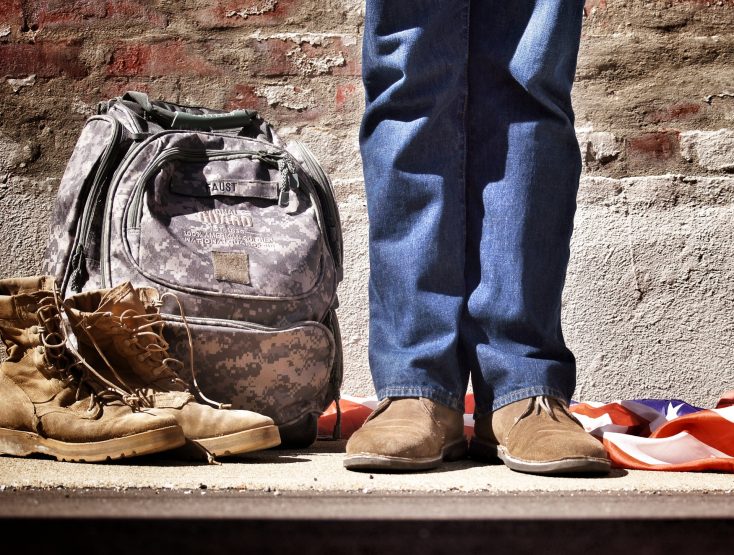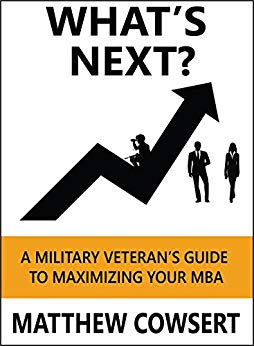
Graduate management education provides many benefits for veteran MBA applicants. Besides the skills-building and networking opportunities, it can be an incredible launchpad for a civilian career. Top business schools admire the leadership skills, grit, and discipline veteran MBA applicants typically possess. Also, military veterans have often had more practical leadership experience than most MBA students.
Yet some veterans don’t immediately see the correlation between their military skills and experiences and those needed to lead a Fortune 500 company. Don’t let that be you! Earlier this year, Harvard Business School asked members of its Armed Forces Alumni Association to share advice for other military members considering an MBA.
Here’s what Christy Talisse (MBA ’23), who spent eight years in the US Navy as a Weapons Systems Officer, had to say:
“Don’t self-select out! Studying at Harvard had always been a dream of mine, but I never thought I’d be “worthy.” My husband encouraged me to apply and told me I owed it to myself to try. I hope you’ll do the same. Take your moonshot.”
Military service members typically make up 5% to 10% of any given cohort in the top 25 programs. If you’re considering a transition from active military service to business school, begin your research by finding out how each of the programs measures up in the following areas.

1. Explore culture and fit
All applicants should consider whether the business schools that interest them are good fits as far as class size, teaching method, location, and general culture are concerned. However, a good fit is even more critical for veteran MBA applicants.
Their background is quite different from most candidates, and going from active service to a classroom can be challenging. Having strong outlets of support from the school makes a world of difference.
Begin by finding out how many military veteran students are in the MBA program. Too few fellow servicemen and women may leave students wishing for more relatable peers. Next, find out what kinds of special programs for veterans exist. Does the business school have student clubs or organizations created specifically for veterans? Also, learn whether it offers personalized academic and career support to help veterans translate their military skills into civilian life.
Reach out to current students for their honest feedback about daily life in the program. Listen for details beyond what you see on the school website or hear from admissions officers.

2. Consider recruiting efforts and admissions guidance
Another sign of a military-friendly school is whether it hosts MBA admissions events or offers targeted application advice for veteran MBA applicants. To get started, you can:
- Read over the admissions FAQs provided by the Tuck Veterans Club at Tuck School of Business.
- Take advantage of the application and mentorship provided by Wharton’s Veterans Club at the University of Pennsylvania’s Wharton School.
- Check out these links to insights from Chicago Booth students and alumni who joined the program after their military service.
If the school doesn’t host an admissions event specifically for military applicants, your job is a bit tougher. However, you can still determine how eager the program is to recruit veterans by looking at whether it provides support services starting during the application phase—not only once you get in.
Finally, find out if the school offers deferment flexibility to candidates whose needs may change at the last minute if still on active duty.
3. Look into financial aid
The high cost of business school often deters veteran applicants. Many already have families of their own, and the concern over lost wages while studying cannot be overstated.
However, many financial incentives exist specifically for this group. For starters, many MBA programs—including HBS—waive the application fee for active duty applicants. Your actual out-of-pocket expense goes down dramatically once you factor in Veterans Affairs benefits, dedicated veterans scholarships, waived application fees, and the Yellow Ribbon Program.

Under this program, the federal government matches, dollar for dollar, any financial aid that participating schools commit, essentially providing eligible student veterans with free or reduced-cost tuition. It is designed to make out-of-state public colleges, private institutions, and graduate programs more affordable for veterans.
Schools offer varying levels of support under the Yellow Ribbon Program. For example, NYU Stern School of Business will offer up to $30,000 per year in Yellow Ribbon scholarship support, and the VA will provide up to $30,000 in additional funding.
Meanwhile, Stanford GSB will match up to full tuition and mandatory fees (minus Stanford medical insurance) for MBA students who are Yellow Ribbon eligible and opt to receive these benefits.
Visit the U.S. Department of Veterans Affairs website to learn whether the business school limits the number of recipients eligible annually—some are unlimited—and to see the exact dollar amount of the maximum school contribution per student, per year.
4. Consider these resources for veteran MBA applicants
 Veteran MBA applicants need advice targeted toward their specific needs and strengths. In 2018, Matthew Cowsert, a U.S. Army veteran and MBA graduate from NYU Stern School of Business, published a book called What’s Next? A Military Veteran’s Guide to Maximizing Your MBA.
Veteran MBA applicants need advice targeted toward their specific needs and strengths. In 2018, Matthew Cowsert, a U.S. Army veteran and MBA graduate from NYU Stern School of Business, published a book called What’s Next? A Military Veteran’s Guide to Maximizing Your MBA.
Cowsert believes this book will help veterans differentiate themselves from other MBA applicants to gain acceptance to their target program.
Also, check out this four-part series from 2020 on Transitioning to a Top-Tier MBA from the Military Money Matters site. Written by a Wharton admit who received admissions offers from six out of seven top MBA programs, it offers tons of useful information for veterans applying to b-school.
Applicants from the military should know that business school admissions teams prize their experience. So, if that’s your background, make sure your applications highlight those powerful and unique qualities.
The post Veteran MBA Applicants Need These School Research Tips appeared first on Stacy Blackman Consulting - MBA Admissions Consulting.
